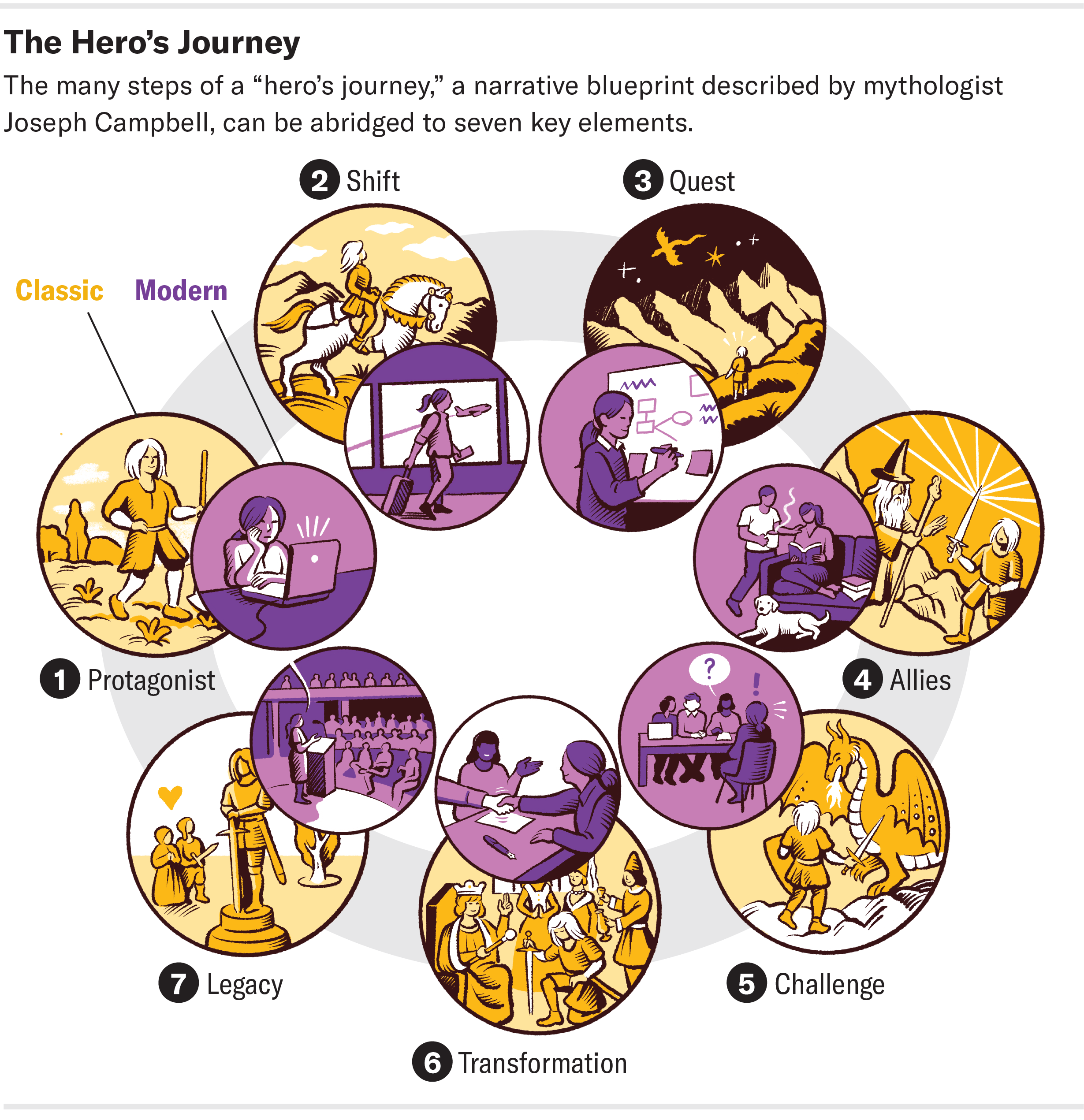'Restorying' your life as a hero's journey
There are some people, perhaps most people, who do not expect setbacks and problems in life. They seem to think that it should all be smooth sailing, and that anything that interferes with this unarticulated plan is somehow annoying or unfair.
Perhaps because I spent my teenage years reading philosophy (which I studied at university) and then my adult life reading Stoic philosophers such as Epictetus and Marcus Aurelius, this isn’t my view. Instead, I’m well aware that everyone has to deal with setbacks and, in fact, they make you stronger and more focused.
This article discusses the results of research based on interventions taking as its basis The Hero’s Journey by Joseph Campbell. He noticed that cultures around the world had foundational stories which were based on a similar structure. The researchers took this approach, updated it for modern life, and used the structure as an intervention to help individuals to tell better stories about their lives.
What do Beowulf, Batman and Barbie all have in common? Ancient legends, comic book sagas and blockbuster movies alike share a storytelling blueprint called “the hero’s journey.” This timeless narrative structure, first described by mythologist Joseph Campbell in 1949, describes ancient epics, such as the Odyssey and the Epic of Gilgamesh, and modern favorites, including the Harry Potter, Star Wars and Lord of the Rings series. Many hero’s journey stories have become cultural touchstones that influence how people think about their world and themselves.Source: To Lead a Meaningful Life, Become Your Own Hero | Scientific AmericanOur research reveals that the hero’s journey is not just for legends and superheroes. In a recent study published in the Journal of Personality and Social Psychology, we show that people who frame their own life as a hero’s journey find more meaning in it. This insight led us to develop a “restorying” intervention to enrich individuals’ sense of meaning and well-being. When people start to see their own lives as heroic quests, we discovered, they also report less depression and can cope better with life’s challenges.
[…]
To explore the connection between people’s life stories and the hero’s journey, we first had to simplify the storytelling arc from Campbell’s original formulation, which featured 17 steps. Some of the steps in the original set were very specific, such as undertaking a “magic flight” after completing a quest. Think of Dorothy, in the novel The Wonderful Wizard of Oz, being carried by flying monkeys to the Emerald City after vanquishing the Wicked Witch of the West. Others are out of touch with contemporary culture, such as encountering “women as temptresses.” We abridged and condensed the 17 steps into seven elements that can be found both in legends and everyday life: a lead protagonist, a shift of circumstances, a quest, a challenge, allies, a personal transformation and a resulting legacy.
For example, in The Lord of the Rings, Frodo (the protagonist) leaves the Shire (a shift) to destroy the Ring (a quest). Sam and Gandalf (his allies) help him face Sauron’s forces (a challenge). He discovers unexpected inner strength (a transformation) and then returns home to help the friends he left behind (a legacy). In a parallel way in everyday life, a young woman (the protagonist) might move to Los Angeles (a shift), develop an idea for a new business (a quest), get support from her family and new friends (her allies), overcome self-doubt after initial failure (a challenge), grow into a confident and successful leader (a transformation) and then help her community (a legacy).
[…]
Anyone can frame their life as a hero’s journey—and we suspect that people can also benefit from taking small steps toward a more heroic life. You can see yourself as a heroic protagonist, for example, by identifying your values and keeping them top of mind in daily life. You can lean into friendships and new experiences. You can set goals much like those of classic quests to stay motivated—and challenge yourself to improve your skills. You can also take stock of lessons learned and ways that you might leave a positive legacy for your community or loved ones.
